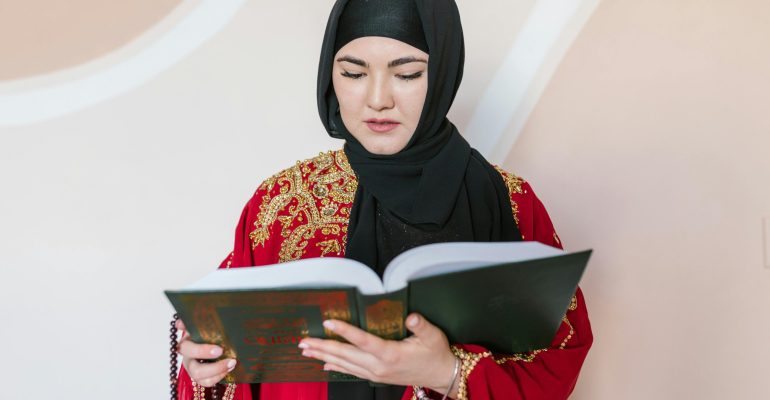Unlocking the Wisdom: Quranic Verses About Ramadan
March 6, 2024 2025-08-13 11:17Unlocking the Wisdom: Quranic Verses About Ramadan
Unlocking the Wisdom: Quranic Verses About Ramadan
Ramadan, the ninth month of the Islamic lunar calendar, holds immense significance in the hearts of Muslims worldwide. It’s a time of spiritual reflection, self-discipline, and heightened devotion to Allah. The Quran, the holy book of Islam, serves as a guiding light during this sacred period, offering wisdom and insights to enrich the Ramadan experience. In this article, we’ll explore Quranic verses about Ramadan, delving into its teachings and significance.
What does the Quran say about Ramadan?
The month of Ramadan [is that] in which was revealed the Quran, a guidance for the people and clear proofs of guidance and criterion.” This profound verse from Surah Al-Baqarah (2:185) encapsulates the essence of Ramadan as a time of divine revelation and spiritual enlightenment. Ramadan holds a special place in the hearts of Muslims worldwide, as it marks the period during which the Quran, the ultimate source of guidance for humanity, was bestowed upon Prophet Muhammad (peace be upon him). The revelation of the Quran during Ramadan underscores the significance of this sacred month and the transformative power of its teachings.
As believers engage in fasting, prayer, and acts of worship during Ramadan, they are reminded of the timeless wisdom and guidance contained within the Quran. The Quran serves as a beacon of light, illuminating the path of righteousness and guiding believers towards the attainment of piety and closeness to Allah. Each verse of the Quran is a source of inspiration and enlightenment, offering solace, guidance, and reassurance to those who seek it.
Moreover, the Quranic revelation during Ramadan highlights the profound connection between this blessed month and the spiritual journey of believers. It is a reminder of the mercy and blessings bestowed upon humanity through the Quran, providing a roadmap for navigating life’s challenges and striving towards moral excellence. During Ramadan, Muslims are encouraged to immerse themselves in the study and contemplation of the Quran, reflecting on its timeless teachings and applying them to their daily lives.
In essence, the Quranic verse in Surah Al-Baqarah (2:185) serves as a powerful reminder of the significance of Ramadan as a time of divine revelation and spiritual renewal. It calls upon believers to embrace the guidance of the Quran wholeheartedly, seeking wisdom, guidance, and enlightenment in its verses. As Muslims embark on their journey through Ramadan, they are encouraged to deepen their connection with the Quran, allowing its teachings to illuminate their hearts and minds, and guiding them towards greater piety and righteousness
Which verses in Quran talk about fasting?
Fasting, known as “Sawm” in Arabic, is a fundamental practice in Islam, considered one of the five pillars of the faith. Throughout the Quran, there are verses that emphasize the significance of fasting and its spiritual benefits. Surah Al-Baqarah, verse 183, addresses believers directly, decreeing upon them the obligation to fast:
“O you who have believed, decreed upon you is fasting as it was decreed upon those before you that you may become righteous.”
This verse underscores the universality of fasting, extending the practice to believers of previous generations. It portrays fasting as a pathway to righteousness, emphasizing its transformative power in purifying the soul and fortifying one’s faith.
Surah Al-Baqarah, verse 187, offers additional guidance regarding fasting, particularly concerning marital relations during Ramadan:
It has been made permissible for you the night preceding fasting to go to your wives [for sexual relations]. They are clothing for you and you are clothing for them. Allah knows that you used to deceive yourselves, so He accepted your repentance and forgave you. So now, have relations with them and seek that which Allah has decreed for you. And eat and drink until the white thread of dawn becomes distinct to you from the black thread [of night]. Then complete the fast until the sunset.
This verse addresses the permissibility of engaging in marital relations during the night preceding fasting. It highlights the importance of maintaining intimate relationships within the bounds of marital commitment, emphasizing the holistic approach of Islam, which considers both the spiritual and physical aspects of human life.
What is a good quote for Ramadan?
A timeless quote from the Quran that encapsulates the essence of Ramadan is found in Surah Al-Baqarah (2:185):
“The month of Ramadan is that in which was revealed the Quran, a guidance for the people and clear proofs of guidance and criterion. So whoever sights the new moon of the month, let him fast it.”
This verse beautifully captures the spirit of Ramadan, highlighting its connection to the revelation of the Quran and emphasizing the importance of fasting as a form of worship and obedience to Allah. Ramadan is not merely a month of abstaining from food and drink during daylight hours; it is a time of spiritual rejuvenation, self-discipline, and increased devotion to Allah.
The Quranic verse serves as a reminder of the divine significance of Ramadan and the profound blessings associated with fasting during this sacred month. It calls upon believers to embrace the spiritual opportunities afforded by Ramadan, seeking closeness to Allah through acts of worship, charity, and reflection. Fasting during Ramadan is a manifestation of faith and obedience, symbolizing a willingness to submit to the will of Allah and adhere to His commandments.
Furthermore, the verse underscores the importance of unity and community in the observance of Ramadan. As Muslims around the world come together to fast, pray, and engage in acts of worship during Ramadan, they are reminded of their shared faith and common purpose. Ramadan is a time of solidarity and compassion, where believers support and uplift one another in their spiritual endeavors.
In essence, the Quranic verse from Surah Al-Baqarah (2:185) encapsulates the essence of Ramadan as a time of spiritual growth, self-reflection, and devotion to Allah. It reminds believers of the profound significance of fasting during this blessed month and encourages them to embrace the spiritual opportunities it offers for personal and communal enrichment.”
This extended paragraph elaborates on the significance of the Quranic verse in Surah Al-Baqarah (2:185) and its relevance to the Ramadan experience, emphasizing themes of spiritual growth, community, and obedience to Allah
Which Surah has the word Ramadan?
Indeed, the word “Ramadan” is specifically mentioned in the Quran in Surah Al-Baqarah (2:185), as mentioned earlier. This verse serves as a reminder of how important Ramadan is for Muslims. It reminds them that during this month, they have a duty to fast. This means they should refrain from eating and drinking during daylight hours.
This mention of Ramadan in the Quran highlights its significance. It’s not just any month; it’s a time when Muslims engage in special acts of worship and reflection. Fasting during Ramadan is a way for Muslims to show their devotion to Allah and strengthen their spiritual connection. It’s a time for self-discipline, gratitude, and seeking forgiveness.
By mentioning Ramadan in Surah Al-Baqarah, the Quran emphasizes its importance as a pillar of Islam. It’s a reminder to Muslims of their commitment to faith and obedience to Allah’s commands. This verse serves as a guide for Muslims, reminding them of their obligations during this blessed month.
In essence, the mention of Ramadan in Surah Al-Baqarah highlights its significance in Islam. It serves as a reminder for Muslims to observe this month with devotion and sincerity, fulfilling their duties and striving for spiritual growth.
Conclusion








